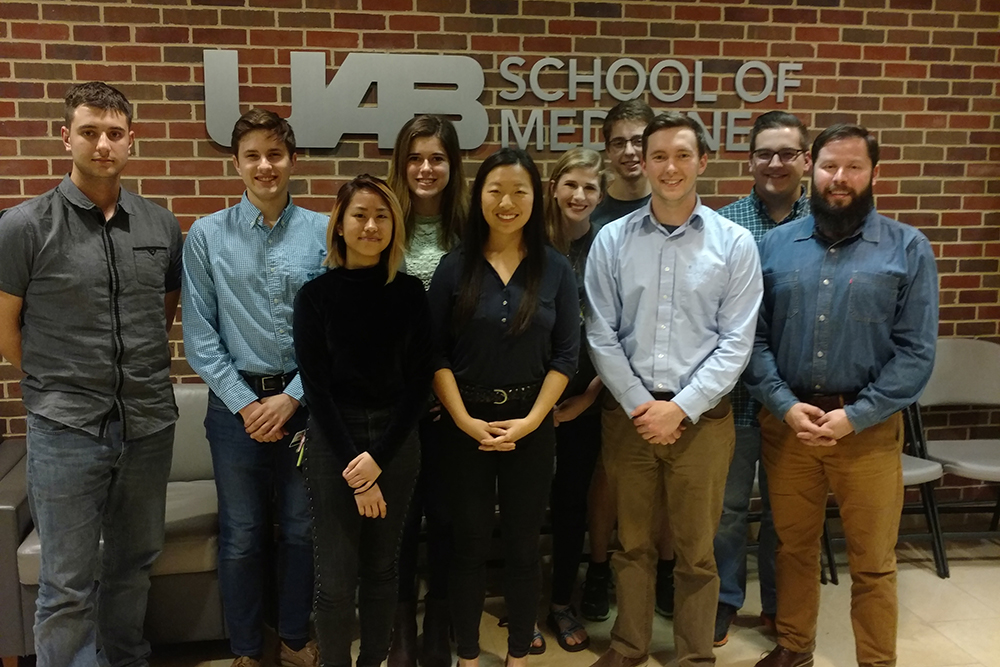 On March 26-30, 46 undergraduate students competed in the Dare to Diagnose competition. Dare to Diagnose was created by undergraduates in the Science and Technology Honors Program in partnership with faculty from the UAB School of Medicine. The competition strives to improve undergraduates' understanding of the medical profession by challenging them to interweave the science of medicine with the art of empathy.
On March 26-30, 46 undergraduate students competed in the Dare to Diagnose competition. Dare to Diagnose was created by undergraduates in the Science and Technology Honors Program in partnership with faculty from the UAB School of Medicine. The competition strives to improve undergraduates' understanding of the medical profession by challenging them to interweave the science of medicine with the art of empathy.
This year’s winners were:
1) Timothy Putman
2) Karen Wang
3) Ashton Reno
4) Drew Freeman
5) Genevieve Tillman
6) Rohit Koratar
First place received 20% of the admission fees collected and a Kaplan Course scholarship valued over $2000. Second place won 15% of the admission fees and a 20% off Kaplan coupon code. Third place won 10% of the admission fees and a 20% off Kaplan coupon code. Fourth through sixth place received a 20% off Kaplan coupon code.
The first part of Dare to Diagnose is a three-day online competition in Kaizen—a gaming platform made by James H. Willig, M.D., MSPH, and others at UAB—where the competitors analyze case studies and answer clinically-relevant questions. The creators of the competition hope to help students learn how to analyze case studies as medical students are trained to do.
“Dare to Diagnose is a wonderful experience for any student looking to go into a health profession,” said undergraduate student Rohit Koratkar. “Understanding how to convey complex medical information to a patient with little or no background in medicine is indicative of what you must do as a healthcare professional. This experience is invaluable, and I cannot recommend it more highly to a pre-health student.”
The top nine competitors moved on to the final portion of the competition at the office of standardized patient education. They interacted with three standardized patients each and were judged for their interpersonal and empathetic skills. The competitors also received feedback from each standardized patient on how they can improve their skills. Shawn Galin, Ph.D., associate professor in the Department of Medicine, offered to guide all nine competitors through a reflection on key takeaways from their experience. The main goal of this exercise was to build the interpersonal skills needed to succeed in a clinical setting.
“Although my major prepared me well for the pathology behind most of the diseases, it was a totally different experience when relaying that kind of information to a patient,” said competitor Emmalee Anthony.
Garrett Sager, president of Dare to Diagnose, says the team plans to expand the competition to other schools next year.
